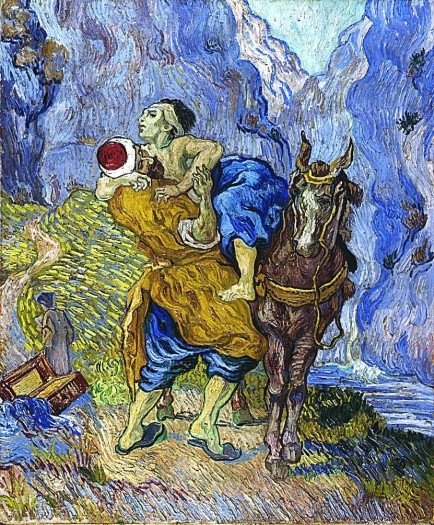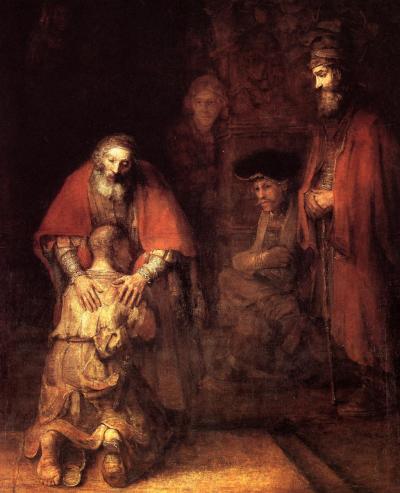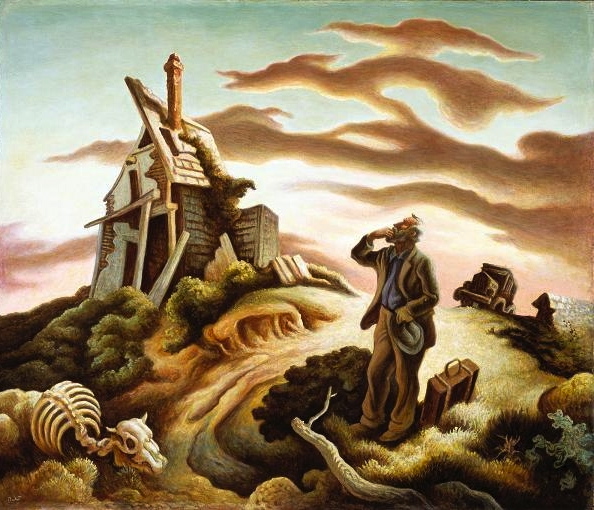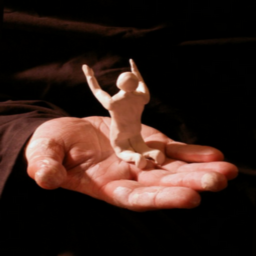 hope
hope Meditation: Abiding Hope
 Monday, April 23, 2012 at 12:20AM
Monday, April 23, 2012 at 12:20AM  Sometimes words change faster than Bible translations. Some words morph faster than politicians change positions. Worse still, some words are taken captive and forced into the labor of deception. They end up communicating the very opposite of their truest meaning.
Sometimes words change faster than Bible translations. Some words morph faster than politicians change positions. Worse still, some words are taken captive and forced into the labor of deception. They end up communicating the very opposite of their truest meaning.
For example, the simple word hope has come to mean something unsure and doubtful. Everyone hopes for the best, but prepares for the worst. When we talk about hope in everyday language we are really talking about our insecurities: who knows how things will really work out?
It’s not always been that way. The word hope used to do some pretty heavy lifting. The Biblical notion of hope is the opposite of un-certainty. It’s a word filled with expectation: expectation of God’s powerful intervention. The word hope describes the in-breaking of joy capable of showing fear to the door. When the Spirit of God speaks of hope the word means “confident expectation,” or quite literally a life-line from heaven. It is an overflowing word, intended to be contagious, changing lives and cultures.
Hope is an abiding thing. It hangs out in the company of faith and love. It will outlast this world.
We could spend the next decade plumbing the depths of Biblical hope. We could explore the pathways of hope until we draw our final breath, only to discover that the half has not been told. Godly hope is the rebirth of divine certainty in us, and it does not disappoint.
Hebrews describes hope as an anchor, thrown--not into the sea--but into the heavens. The preacher of that message suggests hope should spur us to diligence, not out of desperation but rather confidence.
Hosea discovered the "gateway of hope" in the "valley of Trouble."
The Psalms reveal that hope is the antidote for depression and turmoil. Not wishful thinking or a positive mental attitude, but instead drinking deep from springs of hope the way a deer searches for streams of water.
In Romans, the Apostle Paul promised us that hope does not disappoint. Hope is the conduit through which God’s love pours into our hearts.
I’m beginning to re-tool my vocabulary, and more importantly my heart. What has God said? What has he promised? I will lash myself to his revelation, because hope abides. The greatest of these may be love, but faith and hope are love’s fellow travelers. I suspect there’s room for you in the traveling party.
Parables, Realized
 Saturday, April 21, 2012 at 11:17AM
Saturday, April 21, 2012 at 11:17AM 
vanGogh: Good Samaritan (c. 1890)
And behold, a lawyer stood up to put him to the test, saying, “Teacher, what shall I do to inherit eternal life?” He said to him, “What is written in the Law? How do you read it?” And he answered, “You shall love the Lord your God with all your heart and with all your soul and with all your strength and with all your mind, and your neighbor as yourself.” And he said to him, “You have answered correctly; do this, and you will live.”
But he, desiring to justify himself, said to Jesus, “And who is my neighbor?” Jesus replied, “A man was going down from Jerusalem to Jericho, and he fell among robbers, who stripped him and beat him and departed, leaving him half dead . . .
It's inspired: Jesus refuses to use the scripture as a rule-book. Instead he lets the word of God fund his imagination. The Lord is doing more than telling us a story, he is showing us how to interact with the Law.
Rembrandt: Return of the Prodigal Son (c. 1667)
Now the tax collectors and sinners were all drawing near to hear him. And the Pharisees and the scribes grumbled, saying, “This man receives sinners and eats with them.”
So he told them this parable:
“There was a man who had two sons . . . “
Who settles disputes by telling a fairy tale? The smartest guy in the room, that's who.

Thomas Hart Benton's The Prodigal is a Midrash on canvas: what it the family could not survive without the younger son? What if he returned too late?
What about you? Is there a painting that moves your heart or reveals more of God's word to you? Leave us a link!
From Servant to Friend to Family
 Thursday, April 19, 2012 at 01:29AM
Thursday, April 19, 2012 at 01:29AM  Our decision to follow Jesus includes the promise of Heaven. Even better: it also includes a miraculous transformation to become part of God’s family. He entrusts us with the task of announcing his kingdom, and making disciples fit for the king. He does not entrust this task to servants: he gives it to brothers.
Our decision to follow Jesus includes the promise of Heaven. Even better: it also includes a miraculous transformation to become part of God’s family. He entrusts us with the task of announcing his kingdom, and making disciples fit for the king. He does not entrust this task to servants: he gives it to brothers.
Jesus began with a master-disciple relationship between him and the twelve. After three years it had morphed into one between friends, and after his ascension, the relationship is family: “the one who makes men holy and those who are made holy are of the same family. So Jesus is not ashamed to call them brothers and sisters.” (Hebrews 2: 11) The call to come and follow is actually a call to join the family business. Not as a hired hand, but as a child of God.
Jesus makes all things new: a new earth, a new heaven, and a new family, drawn from every people group on the earth. This work won’t be completed until the the end of this age, but right now, in this present age, Jesus planted evidence of what the age to come will look like. What will this new new age look like? The answer lies in another question: What kind of people has Jesus adopted?
According to the Apostle Peter, we are that people right now! Listen to the message: “But you are a chosen people, a royal priesthood, a holy nation, a people belonging to God, that you may declare the praises of him who called you out of darkness into his wonderful light. Once you were not a people, but now you are the people of God; once you had not received mercy, but now you have received mercy.” (I Peter 2: 9 - 10)
The early church believed that Jesus had opened the way for heaven to “invade” Earth. This invasion meant that everyone who followed Jesus could draw on the same resources that Jesus used. Our lives should reflect the promise of Heaven. The expectation of the early church was that because Jesus had opened the way, Heaven would regularly break into the everyday business of Earth. Consider this long prayer, which came from the early church in Jerusalem:
When they heard this, they raised their voices together in prayer to God. "Sovereign Lord," they said, "you made the heaven and the earth and the sea, and everything in them. You spoke by the Holy Spirit through the mouth of your servant, our father David:
" 'Why do the nations rage
and the peoples plot in vain?
The kings of the earth take their stand
and the rulers gather together
against the Lord
and against his Anointed One.
Indeed Herod and Pontius Pilate met together with the Gentiles and the people of Israel in this city to conspire against your holy servant Jesus, whom you anointed. They did what your power and will had decided beforehand should happen. Now, Lord, consider their threats and enable your servants to speak your word with great boldness. Stretch out your hand to heal and perform miraculous signs and wonders through the name of your holy servant Jesus."
After they prayed, the place where they were meeting was shaken. And they were all filled with the Holy Spirit and spoke the word of God boldly. (Acts 4: 24 – 31)
Notice the relationship between the people of God and the work of God? His people promised to speak boldly, and asked God to heal and perform miraculous signs and wonders through them. This was the pattern set by Jesus in the gospels, and it was the pattern applied to the church in Acts. Jesus was the firstborn of Heaven; the church was the firstfruit of his ministry. The church was both the harvest and the example of the whole harvest would look like. It was true then; it’s true now. The complete harvest comes at the end of the age. Meanwhile the church exhibits the promise of that harvest.
It’s a glorious picture of the church, but sadly, a picture largely obscured by many churches today. Perhaps we can dare to hope that the church will someday rise to this calling, but our personal, immediate challenge is to see that the church is comprised of individual family members. The we begins when Christ formed in me.
Meditation: What Captures God's Heart?
 Monday, April 16, 2012 at 12:02AM
Monday, April 16, 2012 at 12:02AM  The Creator of the Universe is not easily impressed. Some theologians suggest that because God knows everything, he cannot be moved, but I think some things can capture God's heart. Not power or beauty or intellect--those are the things that impress fools like us. But imagine that moment when the King of the Universe sits up and takes notice of you because of something you thought, said, or did. Could you stir his heart? I think it's possible.
The Creator of the Universe is not easily impressed. Some theologians suggest that because God knows everything, he cannot be moved, but I think some things can capture God's heart. Not power or beauty or intellect--those are the things that impress fools like us. But imagine that moment when the King of the Universe sits up and takes notice of you because of something you thought, said, or did. Could you stir his heart? I think it's possible.
Based on my reading of the scripture, here’s my simple list of what catches the Lord's attention. I’ll bet you could add a few more:
- Jesus loves humility. It turns his head. He told us not to worry about power or position: "Whoever humbles himself like this child is the greatest in the kingdom of heaven" (Matthew 18:4). The scripture says simply, "God resists the proud, but gives grace to the humble" (1 Peter 5:5). If we humble ourselves before him, he stops to listen.
- Jesus is impressed by faith. When he encountered genuine trust he was astonished. What’s more, he usually discovered faith in the socially unacceptable places of his day (Matthew 8:10 and 15: 28 are two examples).
- Jesus stops for the bold: A blind man screaming on the sidelines evoked this question from the Lord, “What do you want me to do for you?” (Luke 18: 35 - 43) Can you imagine Jesus interrupting his schedule to ask you--personally--”What do you want me to do for you?”
- Jesus defends outrageous acts of worship: When Mary crashed a party and lavished attention on Jesus, others criticized her impropriety. But Jesus said “Leave her alone!” (John 12:7) The Lord actually came to her defense. It leads me to ask, do I pour out my passion in a way that would bring Jesus to my defense?
Jesus loved these traits. They caught his attention. But there is one human trait that never seems to impress God: our intelligence. In fact, he said, "I will destroy the wisdom of the wise," and in Jesus he did just that. One thing is sure: God is never impressed by our intellect, but he is frequently impressed by our heart.
The Parable of Sleeping Ugly
 Saturday, April 14, 2012 at 12:02AM
Saturday, April 14, 2012 at 12:02AM 
My friend Jamie Stilson believes in the power of Ugly, by which he means we learn to take off our religious masks and stand naked before God. Ugly will liberate us from false spirituality and is a celebration of the beauty of God’s grace reflected through our weaknesses, not our strengths. I hope you will find him as ugly as I do, because in him God's grace shines through. Everyone should own a copy of his book, The Power of Ugly. Jamie blogs here and tweets here.
As I write this it is Holy Saturday, the day in-between the cross and the resurrection, the day of waiting, the day of disillusionment, it is the day I find myself living in most of the time. Jesus tells a parable that gives us hope and encouragement to celebrate this living in-between. It is a parable that gives us great insight into how the Kingdom works without giving us any answers. The parable I call Ugly Sleeping is found only in Mark’s Gospel, 4:26-29:
“The kingdom of God is as if a man should scatter seed on the ground. He sleeps and rises night and day, and the seed sprouts and grows; he knows not how. The earth produces by itself, first the blade, then the ear, then the full grain in the ear. But when the grain is ripe, at once he puts in the sickle, because the harvest has come.”
Jesus had already spoken parables of the Kingdom being like sowing a seed, but in this parable he gives us the secret knowledge of how it works. We love to understand how things work so we feel like we are more in control; we love the how to messages that fill in the blanks with the knowledge we need to be happy and a little holy. But in this parable Jesus explains how the Kingdom works when the seed is sown by telling us “the seeds sprouts and grows though the sower does not know how.” You may say that is not an explanation but a mystery--and you’d be right. How the Kingdom works is beyond our understanding but it does work. Can you live with that? I am very cautious about anyone who is an expert about how God works. The longer I walk with Jesus the less certain I am. The more I learn about the Kingdom the less I really understand. This is ugly theology but trust transforms it into beautiful childlike faith.
In essence Jesus tells us that after we have done our part by sowing in faith all we can do is to go to bed! The alternative which I often select is to stay up striving, worrying, fearing, and some faithless praying. One of the best examples in my life would be the teenage years of our three daughters (you can read more in The Power of Ugly, the chapter called Ugly Parenting). We sowed the seed over and over in our daughters hearts, singing over it, praying for it, crying about it, shouting at it to grow but rarely did we just go to bed in perfect peace knowing that in the hiddenness and silence God was powerfully at work. It is a battle to believe that God’s seed is more powerful than a teenagers rebellion.
Jesus goes on to describe the growth of the seed as producing “all by itself.” The word Mark uses, automato, is only found one other place: in Acts 12:10, where a huge iron gate that is locked “opens for them by itself” so Peter is able to escape from prison. This word is of course where we get our word automatically. Jesus says that the seed needs no help from us, leaving us in a place of humbleness and helplessness. Once we have done our part we must believe that God is faithful to do His. The miracle of resurrection is the basis of our faith for which we wait on Holy Saturday while the “seed is planted.” We will not know how but we will know who is working. Is it enough for us to see no evidence, hear no noise of work going on, to stand helplessly by knowing there is nothing God needs from us and go to bed in peace?
The sower went about his daily life being faithful to his responsibilities knowing that in the unseen, the underground Kingdom was at work ready to break forth at any moment. This hope floods the ordinary moments of life with Kingdom expectations. Free from the need to understand in order to believe and delivered from the false responsibilities of trying to make His seed grow we rest in Him.
In many ways going to sleep is like dying, in fact, the New Testament refers to dead believers as “sleeping.” I am not sure teaching little children the traumatic prayer “now I lay me down to sleep and pray the Lord my soul to keep and if I die before I wake, I pray my soul the Lord to take” is the best way to get this truth across. Jesus teaches us in this parable that one of our greatest acts of faith is going to bed with a complete trust that while we sleep He is working and His kingdom is advancing. In sleep we are completely helpless and totally inactive, depending on Him who never slumbers or sleeps. (Ps.121:4) The seed will sprout all by itself in the miracle of resurrection and we will not know how it happened but we will certainly know Who made it happen. Yes, God is working while we sleep and while we live our ordinary lives, but it is usually unseen and without noise.
To be Kingdom people we must embrace our helplessness, knowing He does not need our help. We should celebrate our ignorance of how His Kingdom works, while we in faith expect the blade to sprout up. Tonight why not try laying your head on the pillow in faith and practice dying? Get some “Ugly Sleep,” knowing God is at work.

